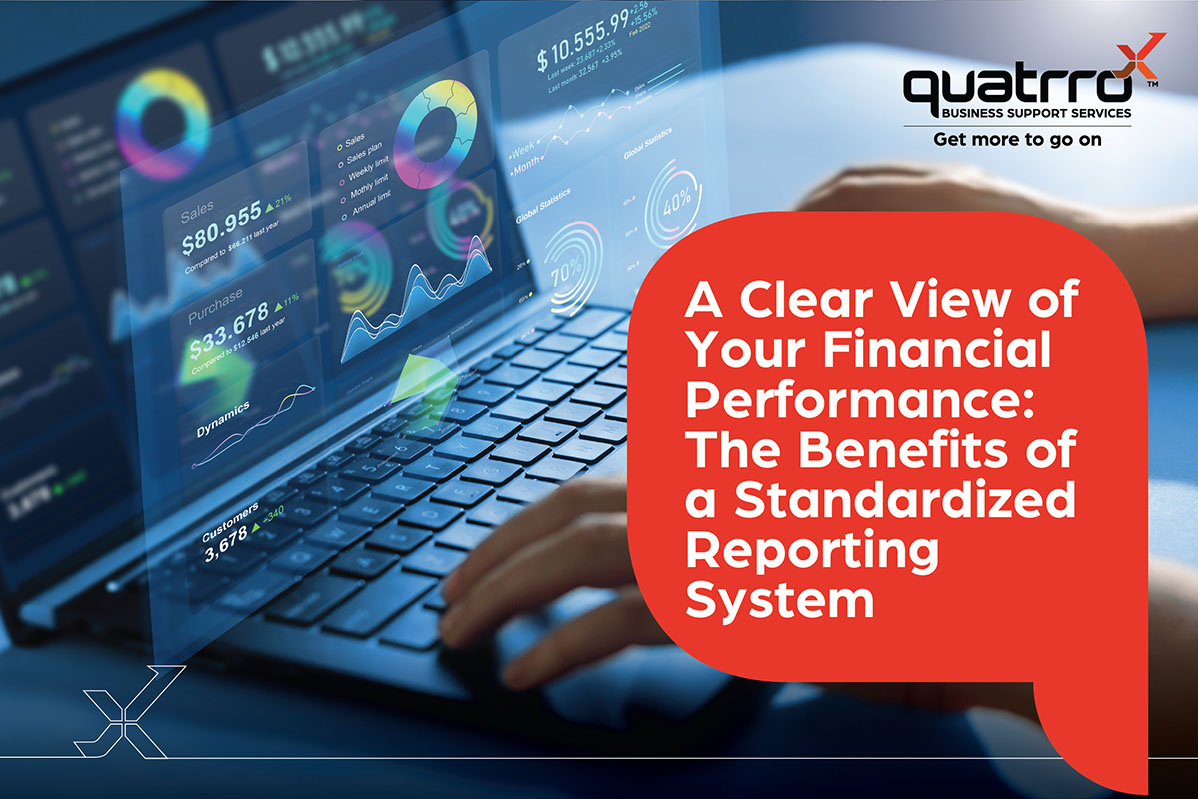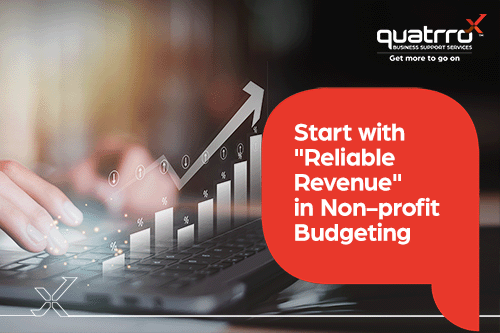Blog Details
Unlocking the Power of a Standardized Financial Reporting System for Your Business
May 22, 2023

Financial reporting is a critical function of any business. It entails the preparation of financial statements that detail a company’s financial performance, position, and cash flows. The accuracy, reliability, and completeness of financial statements are essential for stakeholders, including shareholders, creditors, customers, suppliers, and regulatory agencies, to make informed decisions about the business.
Compliance with regulations and standards related to financial reporting is a critical issue for businesses of all sizes. Noncompliance with these regulations and standards can result in hefty penalties, fines, and legal ramifications. That is why businesses must have a standardized financial reporting system in place to ensure compliance with these requirements and standards.
A standardized financial reporting system is a collection of policies, methods, and structures used by organizations to generate and display financial statements. It is intended to improve financial reporting consistency and comparability across entities, industries, and countries. A standardized financial reporting system can ensure that these requirements and standards are followed. Some of the advantages of a standardized financial reporting system for organizations are as follows:
Accuracy and Consistency
A standardized financial reporting system ensures that financial reports are accurate and consistent across a company’s departments and divisions. This is especially crucial for organizations with several sites, or those that operate in different countries with differing financial reporting standards.
Businesses can use a standardized financial reporting system to ensure that their financial reports are created consistently and accurately, regardless of where they are located or who is responsible for them. This helps to prevent errors and assures the accuracy of financial data.
Furthermore, standardization can assist businesses in avoiding inconsistencies and errors that can occur as a result of manual processes. Standardization of financial reporting processes through automation and technology adoption is gaining popularity since it can increase financial reporting accuracy and uniformity.
Time and Cost Savings
Businesses can save time and money by implementing a standardized financial reporting system. They can reduce the amount of time and resources necessary to create financial reports by streamlining financial reporting procedures and removing redundant tasks.
This can result in cost savings, as businesses can avoid excess costs associated with manual data entry and reconciliation, as well as the cost of errors that inherently come along with the approach. Additionally, a standardized financial reporting system can help businesses identify and eliminate inefficiencies in their financial reporting processes, further reducing costs and improving efficiency.
Furthermore, a standardized financial reporting system can provide better data and reduce the need for rework. Accurate and consistent data can help businesses streamline their financial reporting processes and identify opportunities for cost savings and improved efficiency.
Better Decision Making
Making informed business decisions requires accurate and dependable financial information. Businesses can use a standardized financial reporting system to get the financial information they need to make educated decisions about investments, financing, and other business activities.
Businesses can keep informed about their financial performance and make better decisions about how to allocate resources and plan for the future when they have timely and accurate financial reports. This can assist companies in meeting their objectives and remaining competitive in their industry.
Furthermore, standardized financial reporting systems can provide businesses with information about their financial position, such as revenue and expense trends, profitability, and liquidity. This data can assist them in making agile, strategic decisions about operations, investments, and finance.
Reduced Risk
Compliance with regulations and standards related to financial reporting is critical for reducing risk. A standardized financial reporting system can help ensure that financial reports comply with these regulations and standards, reducing the risk of costly penalties, fines, and legal consequences.
Additionally, a standardized financial reporting system can help businesses identify and mitigate risks related to financial reporting. By providing accurate and reliable financial information, businesses can identify potential risks and take steps to mitigate them before they become a problem. Moreover, a standardized financial reporting system can help businesses maintain the trust and confidence of stakeholders
By implementing a standardized financial reporting system, businesses can reduce the risk of costly penalties and fines, streamline their financial reporting processes, and make better-informed business decisions. Outsourcing financial reporting to a Business Process Outsourcing (BPO) service provider can further enhance these benefits by providing access to specialized expertise and technology while freeing up internal resources for other strategic initiatives.
Ultimately, financial reporting compliance is an essential aspect of running a successful business, and companies that prioritize it are more likely to achieve long-term success. By partnering with a BPO provider that specializes in financial reporting, businesses can focus on their core competencies while leveraging the expertise and resources of their outsourcing partner to ensure compliance and drive growth.







